The Lord's Love Seeks Out Sinners and Dies for Them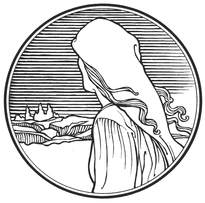
Whenever the New Testament Gospels name the women who were with Jesus, St. Mary Magdalene is listed first (John 19:25 is the only exception), perhaps because she was the first to see the risen Savior alive. Luke 8:2 reports that Jesus had cured her of being possessed by seven demons. Through the centuries, she has often been identified with the repentant “woman of the city” who anointed Jesus’ feet as He sat at the table in the Pharisee’s home (Luke 7:36 -50). But there is no biblical basis for this identification of her with a penitent prostitute. Nor is she to be identified with Mary, the sister of Martha, in Bethany. According to the Gospels, Mary Magdalene saw Jesus die; she witnessed His burial; and, most important, she was the first to see Him alive again after His resurrection (John 20:11-18). It is for good reason that Bernard of Clairvaux calls her “the apostle to the apostles.”
0 Comments
Festival Service ~ June 24, 2018 ~ The Feast of the Nativity of St. John the Baptist (Johannisfest)6/24/2018 The Forerunner of Christ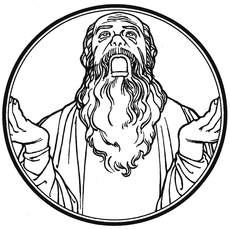
In the Church Year calendar, June 24 is The Nativity of St. John the Baptist. John’s nativity followed the course of most Jewish births at the time. The age of his parents, however, indicated that his conception was miraculous. Not miraculous like Jesus who had no earthly father; but miraculous because both Elizabeth and Zechariah were “advanced in years” and Elizabeth was barren (Luke 1:7). Thus, friends and relatives, recognizing God’s hand in all of this, buzzed about John’s future. “What then will this child be?” (Luke 1:66) Zechariah knew. Through the power of the Holy Spirit he prophesied, “And you, child, will be called the prophet of the Most High; for you will go before the Lord to prepare his ways” (Luke 1:76).
No, St. John the Baptist was not the Christ; only His Forerunner (Acts 13:25). He was called from the womb to bring Jacob back to God through his baptism of repentance for the forgiveness of sins (Is 49:5), just as Christ was the true Servant of the Lord. Miraculously conceived by Zechariah the priest of barren Elizabeth, John was marked to be the greatest born of women (Matt. 11:11). The Church rejoices over the Lord’s mercy just as Elizabeth’s neighbors and relatives did at John’s birth. But when Zechariah’s tongue was loosed, John was not the subject of his song. Blessed be the Lord God of Israel, who has visited and redeemed His people. John is the voice preparing the way of the Lord (Isa. 40:3); Jesus, the virgin-born Son of God, is that Lord. John is the prophet of the Most High. He is born to give knowledge of salvation to God’s people by the forgiveness of their sins, because Christ the Dayspring is visiting (Luke 1:76–79). Thus, what John preaches is the comfort of iniquity pardoned by Jesus, the promised Savior of Israel (Acts 13:23) and the nations, that His salvation may reach to the end of the earth (Isa. 49:6).
The Holy Trinity Reveals Himself to Sinners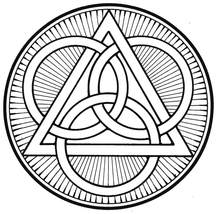 We bless the Holy Trinity—the Lord of heaven and earth, the God of our fathers—because He is the God who has mercy on us. Just as His Being is beyond our understanding, even more so is His mercy. That mercy comes to us most pointedly in the waters of Holy Baptism. And that mercy delivered by the Holy Father in the Blood of the Holy Son through the Holy Spirit gives us the ability and boldness to confess the true faith. So our prayer is that this Triune God would continue and keep us steadfast in this Faith. When Isaiah beheld the glory of the Lord, he cried out “Woe is me!” For the sinner cannot stand in the presence of a holy God and live (Is. 6:1–7). But God the Father lifted up His Son Jesus for us on the cross, that whoever believes in Him should not perish but have eternal life. This eternal life of Christ is given us according to the Holy Spirit’s good pleasure in Baptism. “Unless one is born [again] of water and the Spirit, he cannot enter the kingdom of God” (John 3:5). To sinners in fear of death, the messengers of God place on our lips the living body and blood of Christ and speak His words of absolution, “Your guilt is taken away, and your sin atoned for” (Is. 6:7). Having received forgiveness and life from the Father through the Son by the Holy Spirit, we join with the angels in praising the blessed Trinity, “Holy, holy, holy is the LORD of hosts!” (Is. 6:3). “For from Him and through Him and to Him are all things. To Him be glory forever. Amen” (Rom. 11:33–36).
Jesus Blesses Us with His Name and Saves Us with His Blood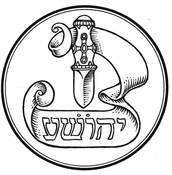
Our newborn God keeps the Law for us and brings Abraham’s promises to their fulfillment when He is circumcised. It is there that the Name above all names is “bestowed on Him” (Phil. 2:9), “the Name given by the angel before he was conceived in the womb”: Jesus, “the Lord saves” (Luke 2:21, Holy Gospel). He sheds the first drops of His precious blood in accordance with this Name and in anticipation of His cross, “for He will save His people from their sins” (Matt. 1:21). The law’s captivity gives way to the freedom of faith in Christ Jesus, who cuts a new covenant in His blood to be received by faith, whether male or female, Jew or Greek (Gal. 3:23–28, Second Lesson). His Name is given to us in Holy Baptism, and we are made sons of God and “heirs according to promise,” true offspring of Abraham by faith (Gal. 3:29). Eight days after the celebration of our Lord’s birth, a new “Year of our Lord” is begun in Jesus’ holy Name and with His benediction. Jesus is the Lord, and by this Name we are blessed (Num. 6:22–27, First Lesson).
On the cover are objects that connect closely to today’s celebration of the circumcision and naming of Jesus. A knife, embedded with jewels and engraved with the sign of the cross is a reminder of the act of circumcision that took place eight days after the birth of Jesus. This knife is not an ordinary knife, but ceremonial in nature, indicating that this rite isn’t just some ordinary action taking place. For a male Israelite, this act would not only place him under the obligations of the Law, but would also entitle him to the covenant promise of God to send a Savior. So the same is true of Christ. This act is not merely symbolic. Through his circumcision he places himself under the Law of God, and declares, through the first shedding of his blood, that he is the promised Savior from sin. Also adorning the cover is a Hebrew word (read right-to-left): “Yeshua.” It is the Old Testament name “Joshua,” which means “he saves.” This name was common in Israel at the time of Jesus’ birth. It would not have turned any heads at the Temple that morning. However, as the angel Gabriel reminded Joseph, this small child “would save his people from their sins” (Matthew 1:21). What an appropriate name given to a baby who already, through his perfect obedience to the Law (of being circumcised on the eighth day), would indeed save us all from our sins!
Festival Service ~ The Commemoration of the Lutheran Reformation (Observed) ~ October 29, 201710/29/2017 
As we commemorate the Reformation of the Church we give thanks we have been rescued from the false ways of salvation that could only lead us to ruin and doom. We owe God thanks for that rescue accomplished by his grace alone, on account of Christ’s merit alone, and through the means of grace alone. At the same time we remember that apart from unqualified commitment to his Word, grace can be lost and with it the saving faith created through the Word in the one and only Christ, our one and only Savior. Therefore let us hear the Word of the Lord! Prompted by his grace let us recommit ourselves to purity of doc-trine that comes alone from the Word, and to a life that reflects our devotion to the Savior who gives himself for us and then to us in his pure Word and Sacraments.

Today we’re observing the celebration of the Festival of St. Michael and All Angels, which is celebrated on September 29. For 1500 years the Christian Church has celebrated this festival near the autumnal equinox, the day of 12 hours of sunlight and 12 hours of darkness. As Christians watched the autumn nights grow longer and the days grow shorter, they were reminded of the struggle between good and evil— between the forces of light and the forces of darkness—between the angel armies of God and the demonic forces of Satan. And so, every year as autumn darkened into winter, the Church celebrates the Feast of the Archangel and remembers that Michael and All the Angels fought on their side.
Today is the third of six Sundays focusing on The Depths of God’s Grace! Jesus wants to so deepen our understanding of his grace that he becomes all in all to us. In this series, we will see how truly gracious God is.
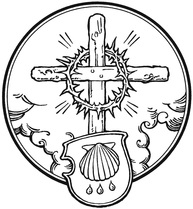 Last week, on Tuesday, November 1, the Church celebrated All Saints' Day. Today, we observe this feast. To “observe” a feast means we celebrate the feast day in a Divine Service not held on the specific day the feast is celebrated. The Feast of All Saints’ is the most comprehensive of the days of commemoration, encompassing the entire scope of that great cloud of witnesses with which we are surrounded (Hebrews 12:1). It holds before the eyes of faith that great multitude which no man can number: all the saints of God in Christ––from every nation, race, culture, and language––who have come "out of the great tribulation...who have washed their robes and made them white in the blood of the Lamb" (Revelation 7:9, 14). As such, it sets before us the full height and depth and breadth and length of our dear Lord's gracious salvation (Ephesians 3:17-19). It shares with Easter a celebration of the resurrection, since all those who have died with Christ Jesus have also been raised with Him (Romans 6:3-8). It shares with Pentecost a celebration of the ingathering of the entire Church catholic–in heaven and on earth, in all times and places––in the one Body of Christ, in the unity of the Spirit in the bond of peace. Just as we have all been called to the one hope that belongs to our call, "one Lord, one faith, one baptism, one God and Father of all, who is over all and through all and in all" (Ephesians 4:4-6). And the Feast of All Saints shares with the final Sundays of the Church Year an eschatological focus on the life everlasting and a confession that "the sufferings of this present time are not worth comparing with the glory that is to be revealed to us" (Romans 8:18). In all of these emphases, the purpose of this feast is to fix our eyes upon Jesus, the author and perfecter of our faith, that we might not grow weary or fainthearted (Hebrews 12:2,3).
Lord, keep us faithful to your Word! On October 31, 1517—498 years ago—a Roman Catholic monk named Martin Luther nailed 95 Theses to the door of the Castle Church in Wittenberg, Germany. Luther, in an effort to reform, the church, actually sparked a movement that would rise up into a revolution against the church. The 95 points which he nailed to the door were doctrinal points in which the church had fallen away from the Word of God. He pointed out that the church’s sole responsibility is to remain faithful to the Word of God—something which the church during his time had forgotten. Today, in our celebration of the Festival of the Lutheran Reformation of the Church, we emphasize the true Church’s unfailing reliance on the Word of God and unflinching testimony to it in the face of persecution. Jesus promised to pour out his Spirit on the Church that we might be God’s mouthpiece even before kings. Today the Church prays that the Lord give us the strength to be faithful and the peace of knowing our lives are safe in his hands. The service that we follow today is an adaptation of the Deutche Messe, authored by Martin Luther in 1526. The hymns of the liturgy (most written by Luther) will give you a feel for what Lutherans heard and sang almost 500 years ago as they worshiped the same Savior who gathers with us. While the settings may be somewhat unfamiliar and difficult to sing, the words teach the Scriptures beautifully. This service was the basis for many Lutheran orders of service over the past generations. You will, undoubtedly, find the general flow of the service to be rather familiar.
On October 23, the Church celebrates the Festival of St. James of Jerusalem, Brother of Jesus and Martyr. St. James of Jerusalem (or "James the Just") is referred to by St. Paul as "the Lord's brother" (Galatians 1:19). Some modern theologians believe that James was a son of Joseph and Mary and, therefore, a biological brother of Jesus. But throughout most of the Church (historically, and even today), Pauls' term "brother" is understood as "cousin" or "kinsman," and James is thought to be the son of a sister of Joseph or Mary who was widowed and had come to live with them. Along with the other relatives of our Lord (except his mother), James did not believe in Jesus until after his resurrection (John 7:3-5; 1 Corinthians 15:7). After becoming a Christian, James was elevated to a position of leadership within the earliest Christian community. Especially following St. Peter's departure from Jerusalem, James was recognized as the bishop of the Church in that holy city (Acts 12:17; 15:12ff.). According to the historian Josephus, James was martyred in AD 62 by being stoned to death by the Sadducees. James authored the Epistle in the New Testament that bears his name. In it, he exhorts his readers to remain steadfast in the one true faith, even in the face of suffering and temptation, and to live by faith the life that is in Christ Jesus. Such a faith, he makes clear, is a busy and active thing, which never ceases to do good, to confess the Gospel by words and actions, and to stake its life, both now and forever, in the cross.
Godliness with contentment leads the faithful steward to a life marked by faith, love, endurance and gentleness. Content with our needs, we make faithful use of the Lord’s blessings to carry out his kingdom work. Use of money for God’s loving purposes, avoids the love of money itself. We fight the good fight to break the grasp of mammon and take hold of the eternal life to which we are called. So then, real wealth is found in heavenly treasure. Earthly riches are not a reward for doing good, but rather an opportunity to do good.
|
Archives
February 2019
Categories
All
|
||||||||||||||||||||||||||||||||||||||||||||||||||||||||||||

 RSS Feed
RSS Feed
